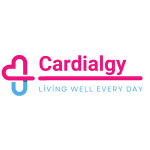Tagged: AFib, AFib symptoms, AFib treatment, atrial fibrillation, Cardioversion, Catheter Ablation, Heart Health, heart rhythm disorders, Irregular Heartbeat, stroke prevention
- This topic has 0 replies, 1 voice, and was last updated 6 months ago by
 Chester.
Chester.
-
AuthorPosts
-
December 17, 2024 at 1:40 pm #4196
 ChesterParticipant
ChesterParticipantAtrial fibrillation (AFib) is a common heart rhythm disorder where the heart’s upper chambers (atria) beat irregularly and rapidly. This disrupts normal blood flow, increasing the risk of blood clots, stroke, and heart failure. Early diagnosis and management are crucial for reducing complications.
What Causes Atrial Fibrillation?
– High Blood Pressure: One of the leading causes, as it strains the heart over time.
– Heart Disease: Coronary artery disease, heart valve problems, or prior heart attacks can trigger AFib.
– Thyroid Disorders: Both overactive and underactive thyroid conditions can lead to irregular heartbeats.
– Sleep Apnea: Interruptions in breathing during sleep increase stress on the heart.
– Alcohol and Caffeine: Excessive consumption can trigger AFib episodes.Common Symptoms of Atrial Fibrillation
AFib symptoms can vary from person to person. Some experience no symptoms, while others face:
– Palpitations (a fluttering or pounding sensation in the chest).
– Fatigue or weakness.
– Shortness of breath, especially during exertion.
– Dizziness or lightheadedness.
– Chest pain or discomfort.Did You Know? Atrial fibrillation affects an estimated 6 million people in the United States and is responsible for nearly 1 in 7 strokes.
How Is Atrial Fibrillation Diagnosed?
AFib is diagnosed through:
– Electrocardiogram (ECG): A simple test that records the heart’s electrical activity.
– Holter Monitoring: A portable ECG device worn for 24–48 hours to detect irregular rhythms.
– Echocardiogram: An ultrasound test that checks heart structure and function.
– Blood Tests: To rule out thyroid problems or other conditions.Treatment Options for Atrial Fibrillation
– Medications:
– Anticoagulants (blood thinners) to reduce stroke risk.
– Beta-blockers and calcium channel blockers to control heart rate.
– Cardioversion: An electrical shock resets the heart’s rhythm to normal.
– Catheter Ablation: A procedure that destroys tissue causing irregular signals.
– Pacemaker: For severe cases, a pacemaker helps regulate heart rhythms.Preventing Atrial Fibrillation
– Maintain a healthy blood pressure and cholesterol level.
– Avoid excessive alcohol and caffeine consumption.
– Manage underlying conditions like diabetes, sleep apnea, or thyroid disorders.
– Exercise regularly and adopt a heart-healthy diet.Inspiring Example
Mary, a 58-year-old accountant, struggled with persistent fatigue and heart palpitations. After being diagnosed with AFib, she underwent catheter ablation and adopted a low-sodium diet. Today, she leads an active, healthy life and encourages others to prioritize heart health. -
AuthorPosts
- You must be logged in to reply to this topic.